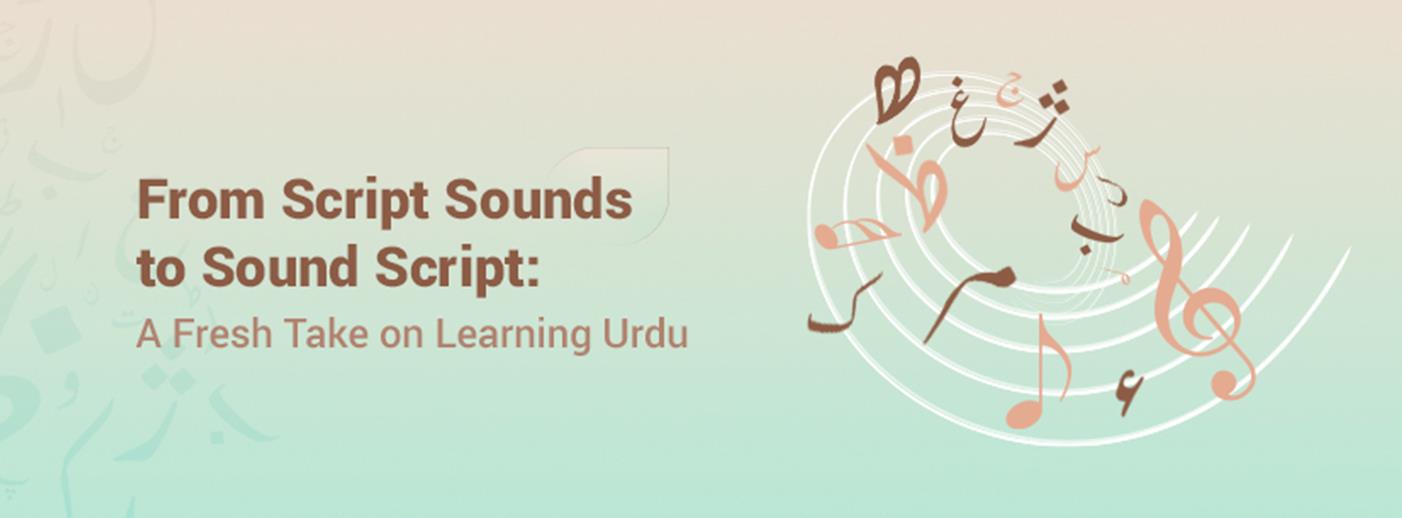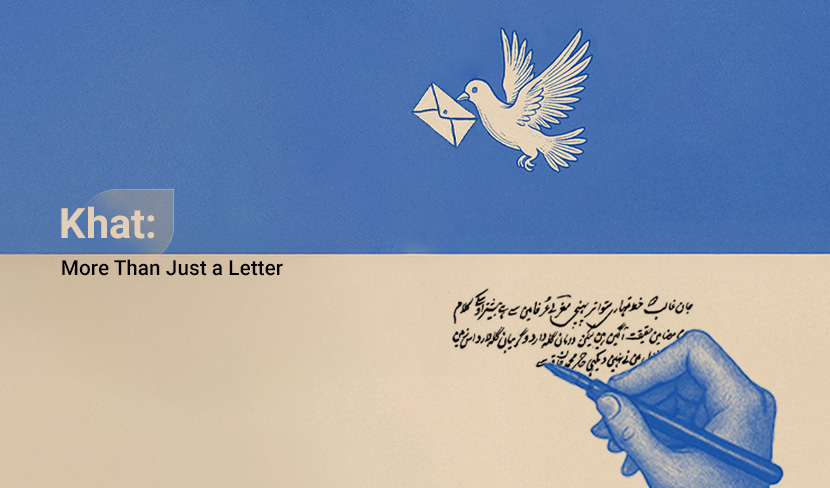زیادہ تلاش کیے گئے الفاظ
محفوظ شدہ الفاظ
کِھسیانی بِلّی کَھمبا نوچے
جسے غصہ آرہا ہو وہ دوسروں پر اپنی جھلاہٹ اتارتا ہے، بے بسی میں آدمی دوسروں پر غصہ اتارتا ہے، شرمندہ شخص دوسروں پر اپنی شرمندگی اتارتا ہے، کمزور کی جھنجھلاہٹ
چَمَنِسْتان
ایسا باغ جہاں پھول کثرت سے ہوں، ایسی جگہ جہاں دور تک پھول ہی پھول اور سبزہ سبزہ نظر آئے، گلزار، گلستان، باغ، پھولوں کا قطعہ، سبز کھیت
From Script Sounds to Sound Script: A Fresh Take on Learning Urdu

phir nazar me.n phuul mahke dil me.n phir sham.e.n jalii.n
phir tasavvur ne liyaa us bazm me.n jaane kaa naam
FAIZ AHMAD FAIZ
This verse above by Faiz Sahab is inarguably among the most adored couplets of Urdu language.
But besides its evocative imagery and nostalgic vibe, do you know what’s the secret behind Ghazal-lovers reciting it over and over, like a cryptic Mantra?
It’s rich, resonant sound effects.
If you know a thing or two about prosody and know how to recite a She’r in tune with its metrical pulse, you know once you recite this verse you’d be stuck in an endless loop!
I know this is one of the most popular meters and there are countless Urdu Ghazals in it, but what is it that particularly stimulates the flow of sounds in this couplet of Faiz?
It’s the repetitive ‘Ph’ sound in the verse.
Especially, with the ‘Phir’ and ‘Phuul’, and again the ‘Phir’ in the second hemistich.
The ‘Ph’ falls exactly on the first beat of a rhythmic time-signature; say, the ‘Sam’ of a 4/4 taal or Rupak Taal, or precisely, the ‘Dhaa’ of the Tabla.
It’s as if the aspirated, blown-out sound of ‘Ph’ lifts the verse to a crescendo at every beat drop:
Phir - na- zar- mein / Phuu - l -mah - ke / dil -me -phir - Sham / en-ja-lii.n
Dam-da-Dam-Dam/ Dam-da-Dam-Dam/ Dam-da-Dam-Dam/ Dam-da-Dam
Kind of cool, no?
But wait, now try something else, replace the imposing ‘Ph’ sound, with the faint ‘f’, now recite the verse.
Notice the difference; not that sonorous at all, right?
What’s happened is that the ‘f’ has literally taken the air out of the verse.
Sadly, or else, this is how most modern-day Urdu poetry aficionados-cum-aspirants read and recite this verse, with the syllable ‘f’.
Though it's common knowledge why this has come to pass – the fact that readers of the Urdu script have skimmed and Devanagari has dropped the all-essential Nuqtas or dots that helped readers tell apart these different syllables – it’s not the Hindi or Urdu speaker who stands at a loss, but it’s that Hindustani speaker, who is positive that Urdu/Hindi is just one language and his OWN, who has further distanced from his Lingua Franca.
And this has surely not been helped by counterproductive arguments such as, ‘So what if Devanagari has dropped Nuqtas, Urdu texts are also barely marked with diacritics (E’raab) which make identifying vowels harder; eventually, people know what they’re talking about!’
The truth is, people don’t.
If you take sensible reading out of the equation, speaking sense makes no sense.
And yes, this forced rigidity upon the two scripts is being broken by Aamozish and the likes, yet for us modern learners and speakers, who are flushed upon with Roman texts from all sides, we need to embrace, or perhaps even invent, a Sound Script, a script that speaks for itself, a script that makes not just advertisements or slogans meaningful, but also poetry of Faiz and other greats more relatable.
Language has more to do than just communicating a meaning, it has to fulfil the purpose of successfully conveying an idea; for an idea is exceedingly Virgin than its meaning.
Wow! We have quickly digressed from relishing a beautiful couplet into a heart-out rant. Perhaps now is the perfect time to take cue from Faiz Sahab’s ‘phir tasavvur ne liyaa us bazm me.n jaane kaa naam’, and step into ‘’that gathering’’ where we can again touch base with our roots, and can know more and unlearn even more!
Oh, and if this ‘Ph’ vs ‘f’ friction still subsides, then we only have Ghalib to turn to:
aagahii daam-e-shuniidan jis qadar chaahe bichhaa.e
mudda.aa anqaa hai apne aalam-e-taqriir kaa
MIRZA GHALIB
Delete 44 saved words?
کیا آپ واقعی ان اندراجات کو حذف کر رہے ہیں؟ انہیں واپس لانا ناممکن ہوگا۔





